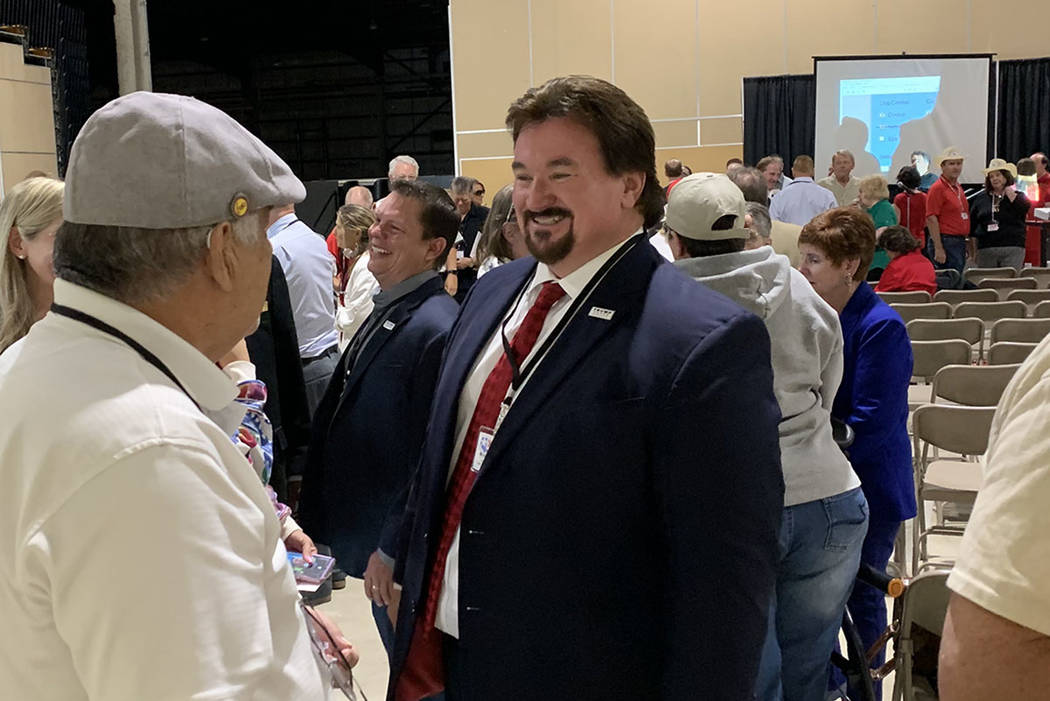STEVE SEBELIUS: GOP right to nix 2020 caucus
Caucus? We don’t need no stinkin’ caucus!
That wasn’t precisely how the Nevada Republican Party’s central committee phrased a resolution to allow its members to vote to endorse Donald Trump without a caucus, but close enough.
Dissenters (and Democrats) on Twitter mocked the party’s decision to hold a central committee vote to bind the party’s national-convention delegates to Trump in lieu of the traditional caucus as the death of democracy or the stifling of the voice of the people. Some even demanded state officials step in.
Even The Wall Street Journal got into the act, lamenting how Arizona, Kansas, Nevada and South Carolina had canceled their primaries and said, “If Mr. Trump is as popular with Republicans as the polls say, he has nothing to fear from letting the voters show it in primaries.”
First, Nevada has a caucus — in which people turn out at local precincts to discuss their favorite candidates with their neighbors — not a primary.
Second, because Trump is as popular with Republicans as the polls say, what’s the point of proving it with a caucus?
Yes, Trump has some challengers: Former Massachusetts Gov. Bill Weld, former South Carolina Gov. Mark Sanford and former Rep. Joe Walsh. (Ohio Gov. John Kasich may get in, too.)
But in Nevada, the central committee will take a vote in February to endorse Trump, and precinct meetings will be held only to select delegates to the county conventions.
Anti-democratic? Not really. In fact, it’s the epitome of small-R republicanism.
Consider: Anyone can join the Republican Party and then attend the county party meetings, where central committee members are elected. Those central committee members are the people who debated both the pros and cons of the resolution before adopting it by majority vote at the party’s Sept. 7 meeting in Winnemucca. Sounds plenty small-D democratic.
It’s a fact that Trump will get his party’s nomination. In 2016, he dispatched a field of far more experienced campaigners, and his popularity — among the Republican base, that is — has only grown since.
So why should the Nevada Republicans spend money on a caucus, which costs more to organize and execute?
“We’re looking at a huge cost savings,” said party spokesman Keith Schipper. He said the precinct meetings that will happen in February will be easier and cheaper to organize than a full-blown caucus.
Instead, the party can bank whatever money would have gone to a caucus to register voters and turn them out for the general election in 2020.
Even the most die-hard Trump fans must acknowledge the president has an uphill climb in Nevada, which he lost to Hillary Clinton in 2016. He needs to put as many states in his column as he can in 2020.
“It’s money that we’re going to use long term,” Schipper says. “It would be malpractice to spend that money on a caucus.”
Some will say the Democrats would do the same thing if the roles were reversed, but that belies the fact that their party has always used the caucus to organize voters. People who take the time to turn out are likely to volunteer, to donate money and to work for the party’s candidates. Caucusing on the Democratic side is a way to generate phone lists, donor lists and volunteer talent pools. (There was a Democratic caucus in 2012, when President Obama was running for re-election, although it didn’t draw as much interest as 2008 or 2016.)
That’s not necessarily the case with Republicans, whom Schipper says are relying on a voter data project run by the national Republican Party that was inspired by, of all things, Obama’s legendary digital infrastructure.
As much as it might delight Democrats to accuse Republicans of stifling dissent and bending to Trump’s will, the decision to forgo a caucus makes sense politically, strategically and financially.
And given that the Republican Party is a private organization entitled to write and rewrite its own rules as its members decide, voting rights are not impaired. You don’t have the right to vote in a GOP state caucus, the way you do in government-run elections.
So with all due respect to The Wall Street Journal and the dissenting chorus on Twitter, we can safely say that next summer in Charlotte, N.C., the great state of Nevada — home to the natural wonders of Lake Tahoe and the Valley of Fire, to the best fighter training schools of both the Navy and the Air Force, to the biggest little city and the entertainment capital of the world — will proudly cast its Republican delegate votes for President Donald J. Trump.
Contact Steve Sebelius at SSebelius@reviewjournal.com or 702-383-0253. Follow @SteveSebelius on Twitter.























